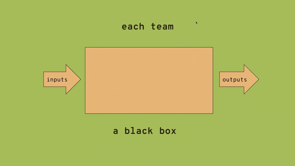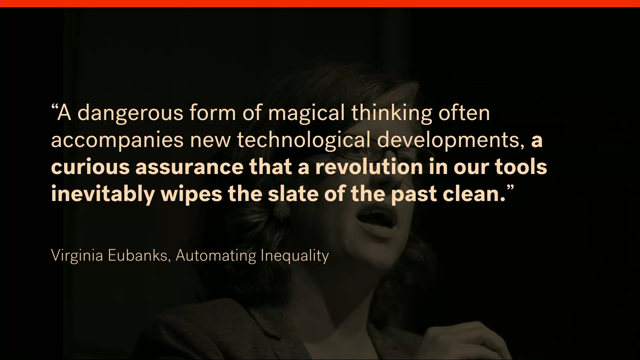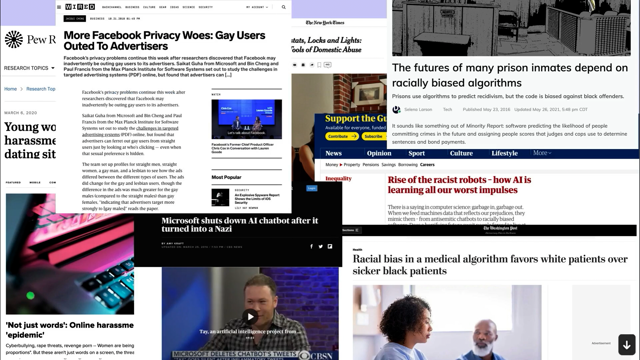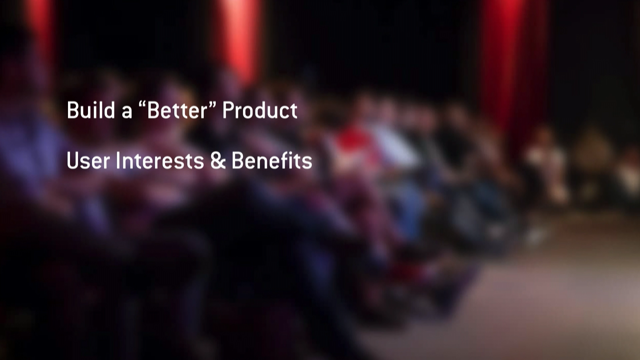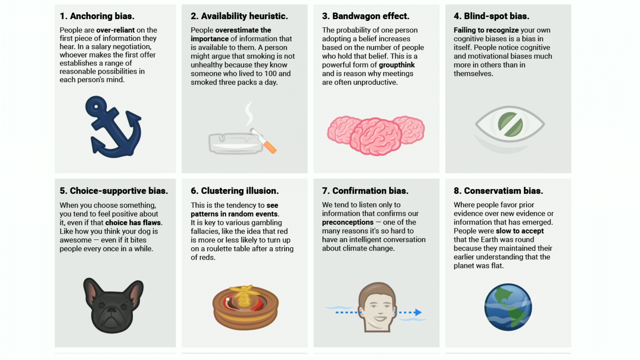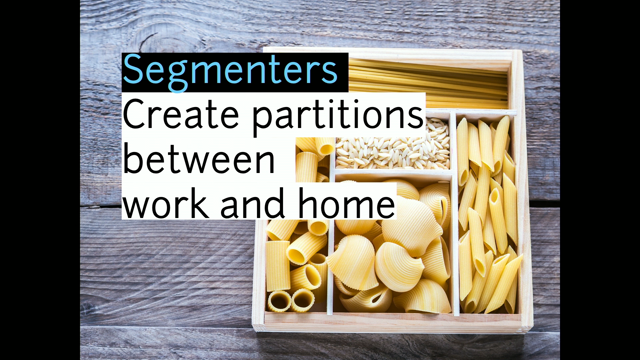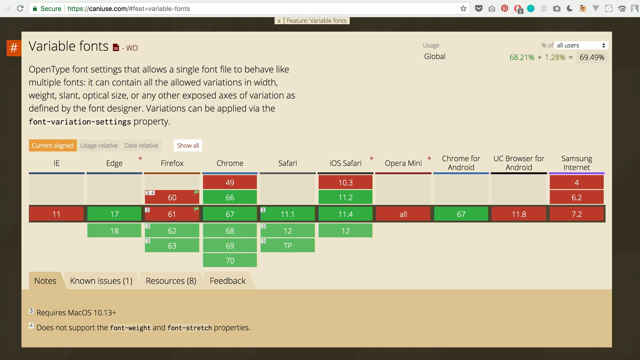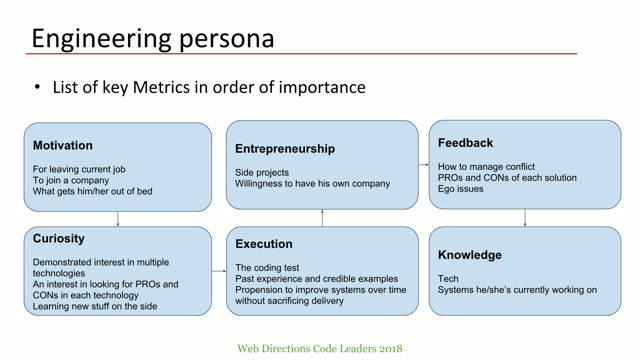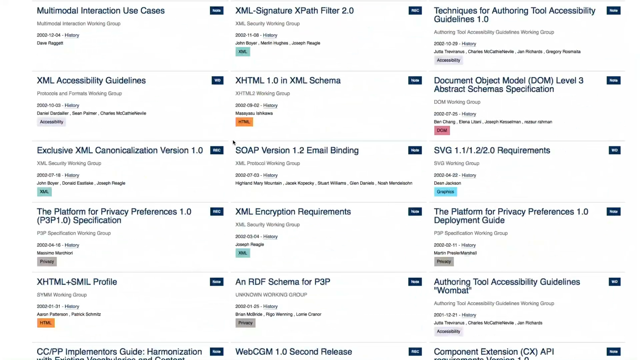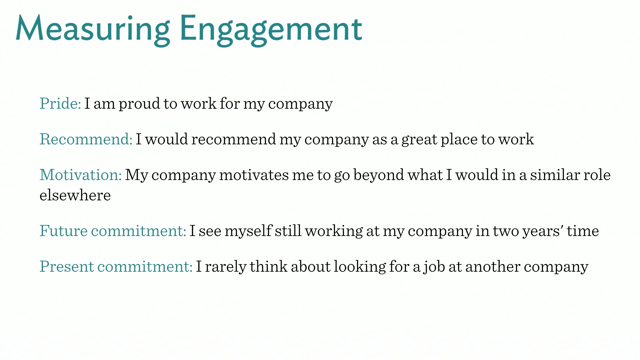
(upbeat electronic music) (applauding) - Back in 2011, Jeff Hammerbacher said, "The best minds of my generation "are thinking about how to make people click ads." We've improved a bit since then.
As you heard from Carolina, the best minds of my generation have been figuring out how to manipulate elections. The best minds of my generation have been standing aside while hate speech has led to genocide in Burma. The best minds of my generation, have been coming up with ingenious ways to cause problem gamblers in Australia to lose more money than in any other country in the world. And the best minds of my generation, came up with a cunning plan to defeat the omission testing devices in Volkswagen vehicles and probably pretty much every other diesel car out there on the market.
Despite that, I think most of us here are not evil people. We're not actively out there trying to do bad things. We probably all wanna make the world a little bit better.
And at the very least we wanna be neutral, make tools that can be used by anyone, sure maybe they might get used by engineers working at Bright but at the same time, they're helping people who are working at charities and really progressive organisations at the same time.
I wanna talk about that dilemma of, is it okay to work on a product which is value neutral? Is that even a thing? I wanna talk about what we can be doing with the 80000 hours that all of us, except the one's who figure out life extension will have to spend working, pity to you who might end up working 800 thousand hours but for the rest of us, we've got about 80000 hours to make a difference. And the question is, what will we do with those 80000 hours? I wanna present a few messages of hope around what is possible with technology, 'cause I'm an optimist.
I recon a lot of good can come out of the tools that we're building, the products that were building, and the environment that we're creating.
Take Solar Analytics for example.
They're a company based in Redfern in Sydney. What they do is they instal hardware in the homes of people who've installed solar panels that can detect whether the panels are working or not. This is important because quite often, an inverter will break, maybe a cockatoo comes and pecks the wires and the panels aren't connected to the inverter anymore, or it was wired up by a cowboy installer who didn't actually wire it up to the grid. If you don't have monitoring, you won't realise that until about three months later when you get the bill from your electricity company and wonder why am I paying so much, I thought solar panels were meant to make my house electricity bill free? What they find is that out of the houses that don't have monitoring, 10% of them actually have systems that are under performing by 50% or less. Whereas the systems that do have monitoring, they can pick that up immediately, they've got algorithms to detect when the most efficient time is to heat up your water, when to use your air conditioning, all kinds of things. They're doing great work, not just in Australia, but around the world. Another company in Sydney is Hello Sunday Morning. This company aims to improve Australia's relationship with alcohol.
As well as having a problem gambling culture, we also have a bit of a problem with drinking here. Hello Sunday Morning aims to help people to identify the triggers that cause them to drink. The app that they have connects them with health coaches, with psychologists, and with other people who are on the same journey to recovery.
And their trials that they've done have showed that they make quite a large impact in helping people to moderate their alcohol consumption and to improve their mental health.
Finally the company that I work at, used to be called COzero, we've rebranded to EnergyLink now. What we do, we instal sensors in commercial buildings and detect when, as you can see in this example, the air conditioning was left on overnight in this building. And it's a large building.
The air conditioning being left on used a lot of electricity.
This is not an uncommon occurrence either.
We find that often building management systems fail or cleaners forget to turn the lights off or the air conditioning off after they leave. Overall, 20% of Australia's energy consumption is wasted because we're leaving the lights on, we're using inefficient appliances.
What we try and do at EnergyLink is to be able to automatically identify things like this, and alert people before it becomes a big issue. Our goal is to improve Australia's carbon footprint. Speaking of carbon footprints, there's a great South Park episode called Smug Alert! Which talks about the citizens of South Park's efforts to improve their carbon footprint by all driving hybrid vehicles.
They become so self-satisfied that, as you can see in this gif, they begin to enjoy the smell of their own farts. As well as, if we were to classify people into the type of work that they're doing, we've got the Cambridge Analyticas and then we've got the people who are doing really good stuff, in between, we've got the people who, like Elon Musk, would like the reputation of being good, but maybe are spending more time on Twitter than actually going out and rescuing the wild boys from the cave. Or this Smart Drink company, which has this incredibly generous offer that if you buy one of their $5 bottles of Smart Drink, not only will you become smarter, but you will also donate one day of drinking water to someone in Africa. The bottle is $5, a day of drinking water costs about .2 cents.
Somehow, it seems a bit odd that they are marketing their credentials so highly when they're not really doing anything much at all. As Carolina talked about, it's really important to constantly be measuring the impact that your organisation creates.
An example of why this is important is the PlayPump. It was a amazing innovation in the 90's that aimed to bring the power and the fun of kids playing on a merry-go-round with the necessity for water in rural communities in Africa. Some people said, oh but isn't this child labour? But they pressed on saying, it's a lot of fun so it doesn't count.
They raised 10's of millions of dollars and installed hundreds of these PlayPumps around Africa. It all seemed good, it was a positive PR message for several years. Until a few generals started to look into it. They discovered that although the kids enjoyed playing on the merry-go-round, they didn't quite enjoy having to play for 27 hours a day, which is the amount of time that a community would need to operate the pump in order to produce water for 2500 people which was the promise of the organisation. Not only that, but in order to pump water, the PlayPump needed to be rotated at very high velocity, to the point where children were flying off, breaking limbs, and not really enjoying themselves too much. This is the kind of problem that we need to address as well to make sure that projects that we're working on are actually creating positive impact and not just positive PR.
I saw a two layer matrix before, I couldn't quite simplify this one, I've got a three dimensional graph here where we can chart people based on the amount of impact that they create, up is good, the amount of attention that they seek for their efforts, and their ability to do good.
The first group of people are the choiceless, the people who are in a dire financial situation, maybe they've been out of work for 12 months, they've got no savings, they're about to default on their mortgage, therefore they need a job, any job. That group of people is going to become increasingly large as we see technologies like driverless cars displace millions of people from employment. But for the group of people here in this room, I don't think many of us are gonna fall into that category, given that software development is a profession least likely to be automated over the coming decades. Then we have the people who are very far along the attention seeking line, the Elon Musks of the world, who really like being given praise for how good a person they are, even if they're... I mean, I love Elon Musk, I think Tesla's great, but the whole mini submarine thing was a bit too much for me.
And then we have the mercenaries, the people who are quite happy to work at a company that makes slot machines or gambling apps or work at Cambridge Analytica, wherever is gonna pay them the most, they don't really care about what they do, they just wanna solve exciting technical challenges without caring about the repercussions of their work. And then we have the doers, the people who are out there making a difference, and they're not talking themselves up about it, they're just getting on with the task.
I'm not here to pass judgement , and I'm not here to pretend that I'm pure as the driven snow. 'Cause I've been in that red category, the mercenary category.
A couple years ago, I failed the newspaper test. The newspaper test is an ethical framework for decision making where basically you try and avoid doing anything that's gonna put you on the front page of a major newspaper.
Back in 2015, I took on a freelance job.
Someone wanted me to build a job site for them, I figured that seemed easy enough, I will just get a off-the-shelf template, set it up. And then he asked me, oh can you just whack on a form at the front of it, we need to collect a few identifying details for this, we'll get people's name and their date of birth and a few other things like that. I told him, don't know about that, seems like you don't really need that information, and it will probably prevent people from going to the jobs as easily.
But he encouraged me to not ask too many questions and just press on with it.
And also, put this terms and conditions document on there as well, won't you? I did that, I didn't read it of course, it was all legalese. Couple of months later, I found out what was in that terms and conditions document. The identifying details from the people who were presumably unemployed and looking for work, were being sold to private colleges which offered very expensive courses, diplomas of management, which you could do at CAIA for about 500 bucks, but which these colleges were offering for $20 thousand.
And they lure people in saying you can have a free laptop if you sign up for this course, getting them into quite a lot of help debt. Not just help debt either, their details were sold onto credit card companies, because people who don't have a job surely need credit cards. And they were sold to insurance companies so that they could be provided with income protection insurance, which would surely help them as well.
I felt pretty bad about this.
Not only was my reputation on the line, I wasn't actually featured in the article, but was that close to me actually being there. But I really felt like I had failed in my ethical duty of care to the people I'd made the website for. I hadn't thought hard enough, I hadn't asked the right questions.
It caused me to do a lot of reflection about the type of work that I wanted to do, and where I wanted to go in the future.
Caused me to come across this group called 80,000 Hours which I alluded to at the start of the talk. It's not just the number of hours that we will work in our lifetime, it's the name of a charity in the UK which aims to figure out how can we best use our skills and talent to move the world forward in a positive direction? It's point is that there are a lot of charities out there, and there are a lot of organisations out there trying to make the world a better place.
But some of them are not very good at it.
Some of them, like the PlayPump are talking a lot and taking a lot of money, but not really achieving the outcomes that we need. And therefore, it's important to apply scientific rigour to figuring out what project should we support, what project should we work on? They've got a number of criteria, the basic idea is that we should probably work on the things that are gonna kill us fastest.
Our whole species is threatened by climate change, by the threat of nuclear holocaust, by pandemics. We should probably focus on those issues.
To do that, we will employ cause prioritisation. It's quite a complex process, to do it properly, you really need a masters in developmental public policy. But the basic idea is you think about, I've got two projects that I might work on, I need to decide which one is actually gonna create more impact for the world.
Let's do a quick test here.
I've got two jobs, imagine you're about to go for a new job, you've got the choice between working for a USB pet rock manufacturer, It's gonna be the next great craze for kids. I don't know hat the USB cable is for, but surely it must be good.
Or you could work for Angaza Energy, a start-up that is installing micro solar panels for communities in Africa to allow children to be able to study when it gets dark.
To allow businesses to operate, to charge their mobile phones, allow kids to not get their faces burnt through kerosene lamps, which is the predominant way that lighting is achieved at the moment.
Out of these, who here recons that it would benefit society if all of us in this room worked for the pet rock company? Yeah, I think you've all passed the test, you know how to prioritise causes.
But I know what you're thinking, pet rocks were the biggest craze in the 90's, that guy who came up with it, he made millions of dollars. Surely a company like that would have lots and lots of cash to pass around and therefore, I should probably work there 'cause I don't wanna deprive myself.
Even though I wanna make the world a better place, I have a mortgage to pay and I need to pay the bills. The thing is these days, is that I don't recon it's that clear at the dichotomy anymore, sure you might get paid more working at a hedge fund than working at company like Hello Sunday Morning, but you're not gonna get completely ripped off either. I've done a bit of a informal salary survey, looking at job listing from companies that I consider to be impact focused.
And from what I can see, the typical salary range for a senior developer at those organisations is 'round about 100, 250k.
I'm not super in touch with the rest of the market, but is that 'round about what a senior developer should get paid? 'Round about.
So I don't recon it's that big of a dichotomy anymore. The next element to effective altruism is to subject your employer, your project, your organisation, to impact evaluation.
To do it properly, you really need to do a randomised control trial.
They're pretty expensive and pretty difficult to do, but you can do it in a sort of amateur version that gets you most of the way. This is what we do at EnergyLink, every Tuesday morning we have our huddle, we have someone from the operations team who reports on some of the issues that we found this week, and then they'll show a graph like this, that shows the year on year change in consumption for the sites that we monitor. And what we really wanna see is the more sites down here where the energy consumption has dipped dramatically, hopefully thanks to the impact that we're creating. But, we can't really be satisfied with that, 'cause the thing is, what if February 2018 was actually a really cold February compared to the previous year? Maybe people didn't need to turn their air conditioning on 'cause it was colder that year? Or what if the businesses that we're working with actually had a decrease in their size, maybe they were doing a renovation at the time, or maybe they had to shut their doors.
It's not enough to look at the pure numbers, it really requires deep scrutiny to figure out, are we actually making a difference or not? That's something that we're continuing to look at, we're trying to come up with a way to adjust those figures based on the weather for example. Every organisation will have some kind of impact metric, and by that I don't mean the number of page views or Facebook likes, or Twitter followers, I'm talking about metrics that really matter, metrics that are gonna alter the lives of the people who use your service. The reason why it's important to track it is, as here I was talking about before, one of the fundamental reasons why people come to work, is if they have a motivating vision, a sense of purpose of what the organisation is doing. 'Cause that's a key part of intrinsic motivation. Who here has seen Dan Pink's talk, Drive? Yeah, a few people.
It's probably not quite as scientific as what Karl Tramp did a few people have criticised Dan's brighter, simple model, but I think it has some credibility to it.
The basic idea is that to foster intrinsic motivation, you need to provide people with autonomy, allowing them to work remotely, allowing them to choose their top technology stack, allowing them to feel like they have a say. You need to give them mastery, letting them come to conferences, giving them mentors, giving them coaches, and you need to give them a sense of purpose. And for me, purpose is a very loaded term that I will talk about in a bit more detail, but I'll first talk about why intrinsic motivation is important.
There's this great study that Dan Pink talks about in his Ted Talk.
What you do, you divide people into two groups and give them a challenge.
You ask them, I want this candle to be stacked to a wall, you've got a box of matches, some thumb tacks, and a candle, how are you gonna do it? The first group, he says, if you do this really fast, I'm gonna pay you 10 bucks, the second group he doesn't give any motivation, he just says try and solve it, it's a fun problem. What ends up happening is the people who are given the financial motivation actually take much longer to finish the challenge. They rush, they try and mash the candle into the wall with tacks, they try and burn things, it doesn't really work, 'cause the solution is actually to take the thumb tacks out of the box and just put the candle into that and then tack the box onto the wall.
This isn't an isolated study.
There's a lot of research showing that intrinsic motivation is better for creativity and problem solving. I don't know about you, but most of my work does involve creativity and problem solving. They've done other studies where they found that if you simplify the problem by taking the thumb tacks out of the box, where the problem is pretty apparent, you're basically just cranking widgets.
In that situation, the people who are offered a financial reward do do it faster. But most of the time, we're not cranking widgets, we're solving tough problems, we're re-architecturing our apps, we're trying to do tough challenges.
To create a sense of purpose, mission statements aren't enough.
We heard about from Joe, the importance of creating a data driven culture. I think it's important to create a data driven culture around the impact that our organisations have. My question for you, is do you give a shit? Are you gonna work on projects that matter? Or are you gonna work on things that maybe don't really make much of an impact? If you do, if you're working at an organisation like that, I'd love it if you would post jobs for your company at programmerswhogiveashit.com I've created another job board, this time it doesn't require a form, and you won't be given offers for expensive courses, where you can find jobs at companies that are making a difference.
I've also got a podcast where you can hear from people who are doing important work. I've interviewed engineers from Hello Sunday Morning, Solar Analytics, Angaza Energy, a bunch of other start-ups around the world. Ultimately, programming is like a scalpel, it can be used to perform surgery, or it can be used to require someone to need surgery. Make sure you use it correctly.
Thank you.
(upbeat music) (applause)
